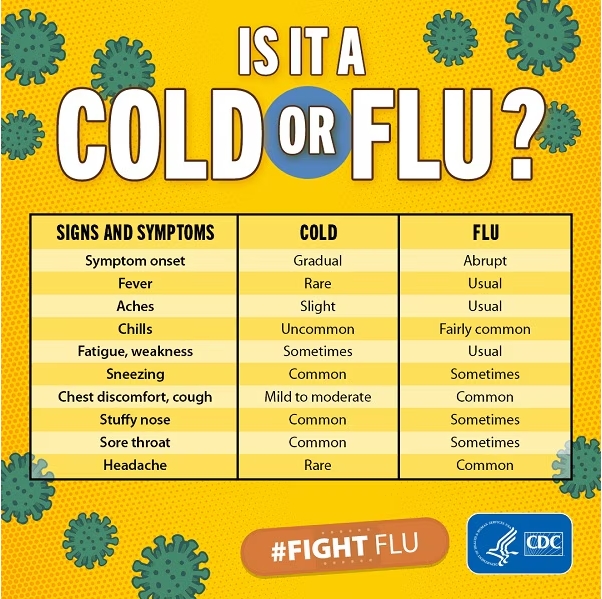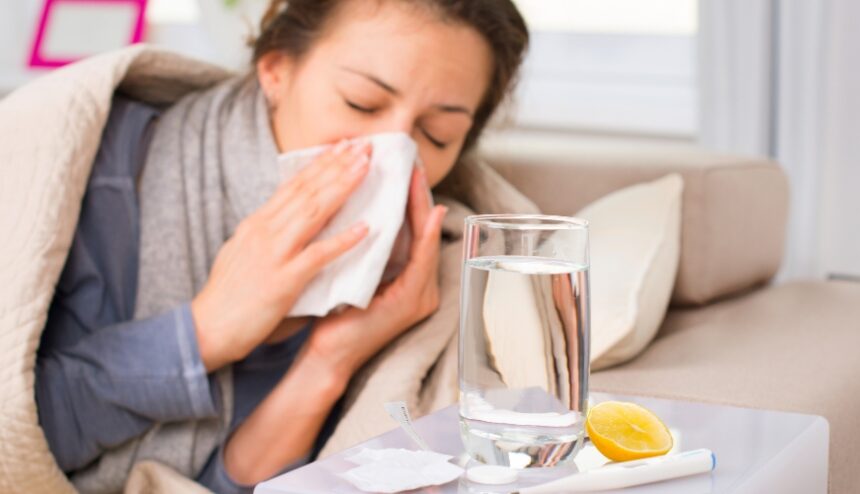
*It’s important to note that not everyone with flu will have a fever.
On average, 8% of the U.S. population gets sick from the flu each season, with a range of 3% – 11%, depending on the season. For a refresh on important things to know about the annual influenza season, here you are.
Flu Facts:
-
- Preventing Influenza:
- An annual flu vaccination is the best protection, along with frequent handwashing and staying away from others who are sick if possible.
- How is Influenza Spread?
- The flu virus is spread mainly by tiny droplets made when people with flu cough, sneeze, or talk – that land in the mouths or noses of people who are nearby. Ick, right?
- Less often, you may get the flu by touching a surface or object that has the flu virus on it and then touching your own mouth or nose.
- When is Someone Contagious With the Flu?
- The time from exposure/infection until symptoms begin is about 2 days but can be 1-4 days.
- People with flu are most contagious during the first three days of their illness. But, they can spread it one day before and up to 5-7 days after.
- You may be able to spread flu to someone else before you know you are sick, as well as when you are sick with symptoms.
- Who is Most Likely to Get Sick from the Flu?
- Children younger than 18 are most likely to get sick, and people 65 and older are least likely to get sick from the flu.
- Median incidence by age group was 9.3% for children 0-17 years, 8.8% for adults 18-64 years, and 3.9% for adults 65 years and older. (CDC study)
- Who is at High Risk for Flu-Related Complications?
- Adults 65+ years, people of any age with certain chronic medical conditions (such as asthma, diabetes, or heart disease), pregnant women, and children younger than five years. (See number 1 above.)
- Do Antibiotics Treat or Help the Flu?
- No, they will not treat the flu because antibiotics are only effective on bacterial infections, not viruses such as the flu or a cold. When antibiotics aren’t needed, they won’t help you, and their side effects could still cause harm.
- Most people have mild illness and do not need medical care. Should you give kids medicine for coughs and colds?
- Antivirals may be able to help lessen the symptoms of influenza and length of illness. Especially for people at higher risk (see number 5 above) of flu-related complications, contact your doctor as soon as your symptoms begin. Antiviral drugs work best when started within 1 to 2 days after flu symptoms.
- Preventing Influenza:


